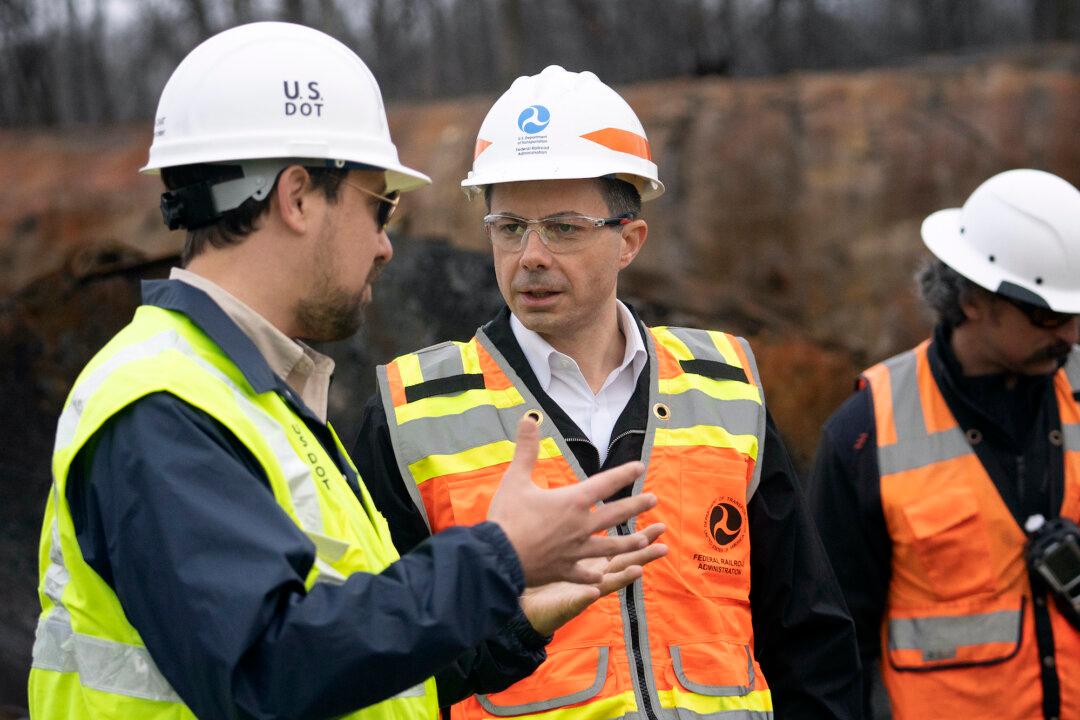House Republicans are launching a probe of U.S. Transportation Secretary Pete Buttigieg’s response to the Feb. 3 derailment of a freight train that resulted in toxic chemicals being released into the air, water, and soil in Ohio.
In a letter to Buttigieg, 21 GOP lawmakers from the House Committee on Oversight and Accountability expressed concerns about the “slow pace” of the Department of Transportation’s (DOT) response, and its impact on the environment and public health.





